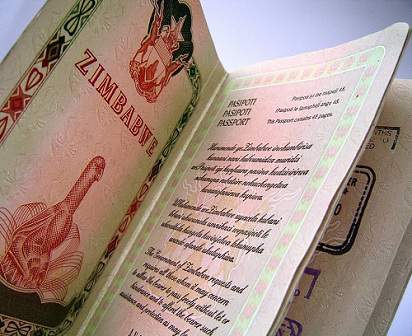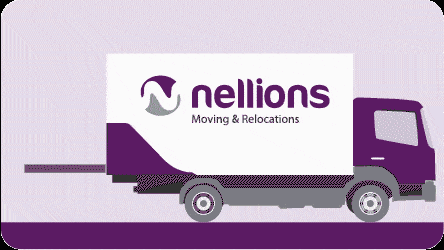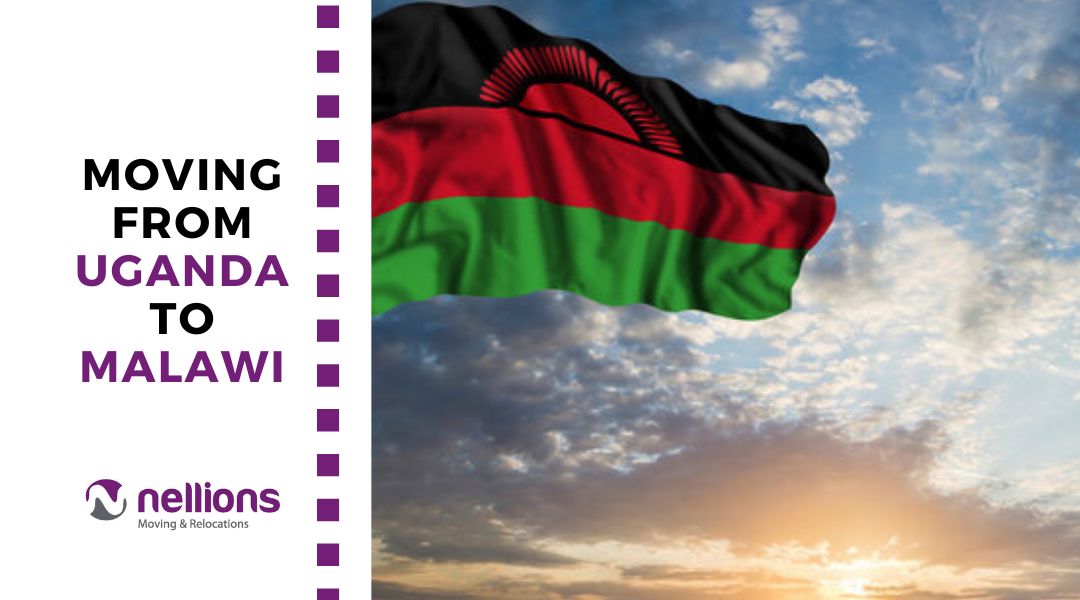
Malawi is a landlocked country in central Africa. The country has suffered from many years of political instability, which has left the economy in shambles. Malawi has a rich history of migration and emigration, with many people shifting to other countries for better opportunities. However, this has become less prominent since the late 1980s and early 1990s when many people left for various reasons.
The current economic policies that the government introduced in Malawi have led to an increase in foreign direct investment (FDI) from both private companies and international bodies like the World Bank, European Union, and African Development Bank. This has attracted many people from around the world who want to invest in Malawi’s growing economy.
Shifting or relocating Uganda Malawi is something every ex-pat does, and it’s a life-changing move for most people, with new challenges and opportunities. But before you go, here’s some essential information about relocating from Uganda to Malawi and the nine things you should know:
1. You Need a Work Permit for Customs Clearance

You may be able to get a work permit in Malawi if you are a skilled worker or if you have been living in the country for more than six months. However, if you don’t have a job lined up, you must apply for a temporary permit before leaving Uganda. The process is simple and straightforward, but it can take some time.
Before applying for a work permit, ensure your employer knows what they need to do. Your employer should approach their home country’s embassy and let them know they have hired someone from another country. They will then be asked to provide proof of employment and income tax statements. The embassy will then issue an e-visa or visa-on-arrival card that allows you to enter Malawi with just one stamp on your passport.
To renew your Temporary Employment Permit (TEP), you will have to wait outside Malawi until your application is processed. You may submit necessary documents such as a letter of employment or employment contract from a non-diplomatic first arrival. It would be best if you did this at least three months before your permit expires.
2. You’ll Require a Duty Waiver for Used Household Goods
A duty waiver is necessary for any item during relocation Uganda Malawi. You should also make sure that you have a duty waiver for all your household goods, including furniture and clothing. You will not be allowed to enter with any prohibited items or goods that have been used in households or commercial premises. This waiver is typically issued before your shipment leaves Uganda.
A duty waiver is necessary for new residents, whether diplomats or not. You’ll need a tax waiver if you’re importing your car or motorcycle into Malawi. Returning nationals must provide termination of employment documentation if they were working outside Malawi, while students must provide a certificate showing completion of studies, such as a certificate of degree.
Returning residents who have been living outside for less than one year must provide:
- Your passport
- Invoice or receipt for the goods being imported
- An inventory list.
- Airway bill
However, goods imported in such cases will be subject to duty.
3. Importing Your Motor Vehicle Duty-Free Comes with Conditions
If you are bringing a motor vehicle into the country, certain conditions need to be satisfied before it can be brought into the country.
New and returning residents may import two motor vehicles per family or one for an unmarried adult. The vehicles must have been owned and used by the importing individual for at least one year before their arrival or importation into Malawi.
In addition, you should arrive in Malawi before your vehicle does. That’s because customs requires you to be physically present at the border to sign duty-free forms.
To avoid paying duty, excise, and VAT at importation, you must not lend, hire, give away, or otherwise dispose of your vehicle within five years of clearing customs. If you do so, you’ll be required to pay the duty waived at importation.
To import motor vehicles into Malawi, you must apply for a duty-free exemption. The exemption only applies to returning residents who import a car once in five years. However, it does not apply to the clearance of commercial vehicles such as buses, pick-ups, lorries, and others.
4. You Need the Original Invoice, Other Documents to Import Your Vehicle
You’ll need to import certain documents when you import import your vehicle to Malawi. Some of these are:
- a bill of lading
- a copy of your passport
- an original purchase invoice
- an original certificate of title and registration
- a copy of your work contract.
- Your driver’s license
- a duty waiver
In addition, foreign diplomats and government or international organizations members require a copy of their diplomatic card/diplomatic franchise. They must also notify the Department of Foreign Affairs when they arrive in the country.
5. Household Goods Must Meet a Certain Threshold to Qualify for Duty-Free Exemption
If you are relocating from Uganda to Malawi and are bringing household goods with you, here are some things that you need to know about the duty-free exemption:
- The goods must be manufactured in Malawi or imported into Malawi. The goods must also be used in the country and not simply intended for personal use. For example, if you are shifting household items to Malawi, they can be duty-free as long as they are not intended for personal use by individuals in Malawi.
- They must have been used for more than six months.
- In order to import new furniture and household goods into Malawi, diplomats and non-diplomats must provide an invoice.
- New household items are considered dutiable, like non-household items such as building materials.
- When returning residents return to Malawi from another country, they must bring back any used household goods and personal effects within six months or after duty waiver has been granted or if they are given work permits.
- If your home needs repairs, you may be able to qualify for a duty-free exemption on those items if they fall under one of these categories:
- Ongoing renovations that are not yet completed but are expected to take place within six months (e.g., new roofing material);
- Renovations that were completed within two years before your arrival (e.g., new bathroom tiles);
- Renovations that were completed between two years before your arrival and two years following your departure from Uganda;
- Renovations that were completed more than two years before you arrived in Malawi
6. You Need to Be Present During Customs Clearance
The biggest challenge in relocating to Malawi is the lack of information about the country, especially regarding customs clearance. You must be present during customs clearance, as there may be delays if you are not at the port where the boat will arrive. You will also have to pay import duties on all your belongings.
If you are not present during customs clearance, it could cause a delay in your relocation process and lead to hefty fines and penalties.
You must have arrived in Malawi before your goods arrive. If you’re a returning resident, you’ll need to show the following documents:
- Your passport
- Proof that you were out of the country for more than one year.
- You’ll also need to submit an inventory list with serial numbers for your electrical appliances.
- An Airway bill
- A duty waiver
Customs clearance can be a tricky process. You may be there for only a few minutes, or it could take hours. The best way to ensure your shift goes smoothly is to be present during customs clearance, and this will allow you to get answers and questions answered quickly.
If you’re new, you must have the following:
- A copy of your passport (showing nationality and date of arrival)
- A resident or temporary employment permit;
- A letter of employment from your employer;
- An inventory with serial numbers for your electrical appliances;
- Proof of insurance; and
- A bill of lading or airway bill.
- A duty waiver
It is vital to note that customs may physically examine your goods.
7. Diplomats Enjoy Conditional Duty-Free Importation of Personal and Household Effects
When Malawian diplomats return to their country of origin, families are entitled to exemption from duty, excise, and VAT for importing household goods and personal effects. However, the diplomat must have been outside the country for 12 months to enjoy this treatment, and he or she must also obtain a letter from the Ministry of Foreign Affairs.
On the other hand, foreign diplomats posted to Malawi enjoy tax-free entry of their household goods and personal effects.
To qualify for a tax-free entry of your household goods and personal effects, you must provide the following:
- A copy of your passport (to show nationality and date of arrival)
- A copy of your diplomatic card
- Notification of arrival
- An inventory with serial numbers for electrical appliances
- Bill of Lading or Airway bill
- Duty Waiver
Diplomats, like other new residents, must bring in goods that have been used for more than six months to qualify for duty exemptions. The reason is that new furniture and household goods are dutiable, and they must be presented with an invoice to assess them.
8. Importers Need a Tax Identification Number Issued by Malawi Revenue Authority
Importers need a Tax Identification Number issued by Malawi Revenue Authority (MRA). This can be obtained from the MRA website.
Once you have the number, you need to apply for a Business Permit at the MRA Office in your area if you want to venture into business; once your business has been registered, you will be required to complete a standard VAT return each quarter.
The Malawi Revenue Authority requires all taxpayers to register for a Tax Identification Number (TIN).
Your TIN will be required to open a bank account, apply for a license, register with the government, file taxes, and more.
Importers need a tax identification number issued by Malawi Revenue Authority (MRTA). The MRTA has issued two types of TINs: Individual TIN and Corporate TIN.
A TIN is required to import goods into Malawi. However, foreigners can use their Immigration Permits or passports as identification when applying for a TIN. You cannot import shipments into the country if you do not have a TIN.
9. Your Goods will be Moved by Road (Long-Distance Moving)
The best way to move your household from Uganda to Malawi is by road. There are so many reasons for this, but the main ones are that it’s quicker, cheaper, and easier.
Shifting household goods can be a frustrating process, especially when you have to travel from one place to another. When you decide to hire a professional moving company, you are assured that all your belongings will be protected and safe while shifting to another country.
This is because when you go by road, you don’t need to worry about any of your belongings getting lost or damaged in transit. Shipping is also not very common in Uganda because it is landlocked.
The only problem with this method of shifting household goods is that it can be very expensive if you do it yourself. If you’re planning on engaging professionals or helpers, this can save you money and time because they’ll take care of everything for you.
Relocating from Uganda to Malawi is an exciting venture, but it can also be a daunting one. It’s important to remember that your goods should be packed properly for transportation and insured for loss or damage.
Additionally, you get some well-deserved peace of mind knowing that your household goods and personal effects are packed to international standards for shipping.
Proper packing is essential as road transport can be a little rough. There’s also the matter of the long distance involved between uganda and Malawi.
Ultimately, however, using professionals allows you to enjoy having your goods unpacked and set up for you the way you’d like in your new home, making your move an enjoyable and pain-free experience.
The benefits of shifting to Malawi are:
- Economic freedom. With less bureaucratic red tape, you will have more time and money to enjoy the best of life. The cost of living is much lower, so you can buy a home, start a business and enjoy your retirement.
- The peace of mind that you get from knowing that Malawi has no political or social unrest makes it an attractive place to live.
- The climate is much more comfortable, so you can spend more time outdoors without worrying about the weather suddenly changing and making you feel uncomfortable.
- You can get a job in Malawi easily. The cost of living is low, and the wages are very high.
- The cost of living is low, and the wages are very high.
- If you have family or friends who live in Malawi, it’s much easier for you to find work there because people will be willing to help you if you speak the language.
- You can make money while saving up for retirement by working as a migrant worker.
Conclusion
As with all life transitions, relocating from Uganda to Malawi will come with its fair share of challenges. However, you should keep a number of things in mind when embarking on a new life in Malawi. Some of these include renewing the required documents in time, ensuring that you have the right documents with you at all times, and learning about customs and what to anticipate during the first few months of living in Malawi. All of this advice is intended to help you approach this transition smoothly.


